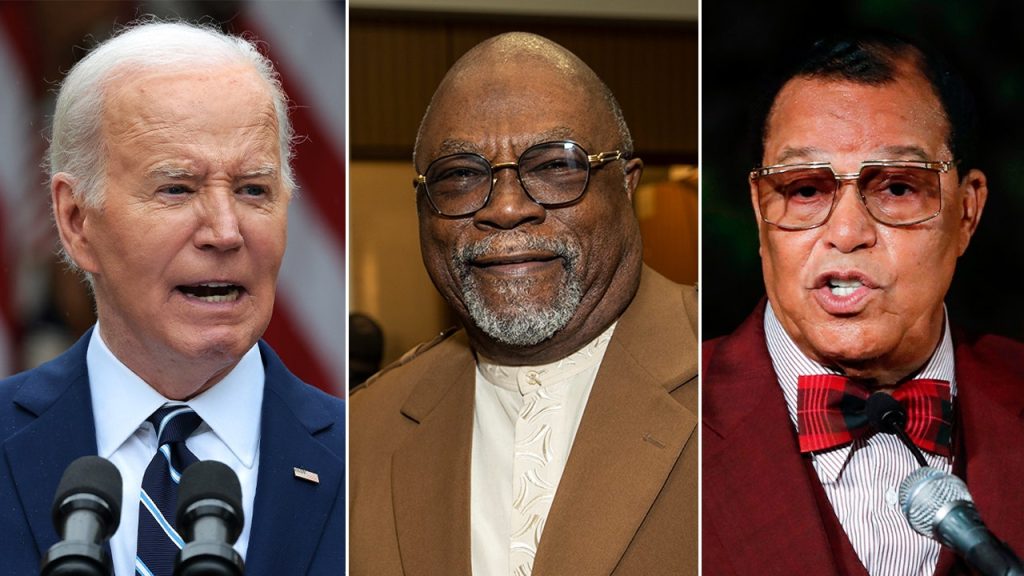Rev. Wendell Anthony, President of the Detroit Branch of the NAACP, who introduced President Biden in Detroit on Sunday night, has a history of associations with notorious antisemite Louis Farrakhan. In 2013, the Anti-Defamation League criticized Anthony for inviting Farrakhan to speak at his church, where the controversial minister made anti-Semitic remarks. The ADL expressed disappointment with Detroit City Council members and local clergy who interacted with Farrakhan during his visit, including U.S. Rep. John Conyers. Farrakhan’s speech at Anthony’s church invoked hateful anti-Semitic rhetoric, referring to “Satanic Jews” and accusing the Jewish community of controlling major institutions.
Despite the backlash against Anthony’s association with Farrakhan, the NAACP leader has a long history of inviting the controversial minister to speak at his church, Fellowship Chapel. In addition to his appearances at the church, Farrakhan also spoke at a “Religious leaders’ breakfast” in 2004 for a “Freedom Weekend” hosted by a think tank founded by Anthony. The think tank listed Farrakhan as one of the “best and brightest” activists in their respective fields. In 1995, Anthony praised Farrakhan for his vision and leadership, particularly in organizing the Million Man March and addressing moral decay within the community.
During Farrakhan’s appearances at Fellowship Chapel, he made disparaging remarks about Jewish people, accusing them of controlling the media, entertainment industry, and distributing false information. Despite the divisive and hateful rhetoric, some individuals within Anthony’s network, such as Troy Muhammad, expressed support for Farrakhan and attended the NAACP Detroit Branch’s annual Fight for Freedom Fund Dinner. While some guests, like Congressman John Conyers, ultimately condemned Farrakhan’s statements, others, including Anthony and Detroit City Councilmember JoAnn Watson, did not publicly address the anti-Semitic rhetoric.
The White House has faced criticism for its ties to individuals associated with Farrakhan, including a left-wing activist who hired one of Farrakhan’s ‘top soldiers’ visiting the White House multiple times. President Biden was previously interviewed by a radio show that promoted Farrakhan’s teachings, leading to concerns about his stance on antisemitism. Despite claims from the White House that they condemn Farrakhan’s hateful ideology, visitor logs revealed inconsistencies in their commitment to barring individuals who praised the controversial minister. The White House emphasized Biden’s condemnation of Farrakhan and antisemitic hate, but questions remain regarding the administration’s handling of individuals with ties to Farrakhan’s network.
In Detroit, where President Biden met with local reverends for advice and support, concerns persist regarding the NAACP leader’s previous associations with Farrakhan and the implications for promoting unity and inclusivity. Rev. Wendell Anthony’s history of inviting Farrakhan to speak at his church raises questions about his judgment and commitment to combating hate speech. As criticism mounts over connections to Farrakhan’s network, including visits to places of worship and public events, the broader implications for public officials’ credibility and accountability come into focus. The need for addressing antisemitism and racism within prominent organizations like the NAACP remains a pressing issue that requires transparency and accountability from leaders like Rev. Anthony.


